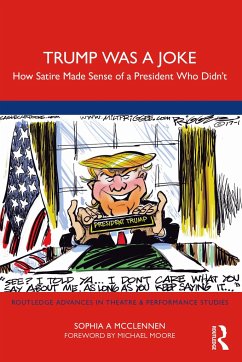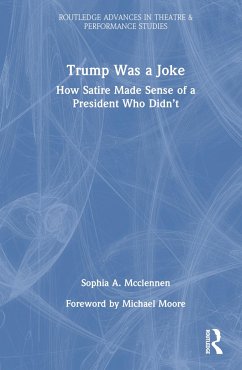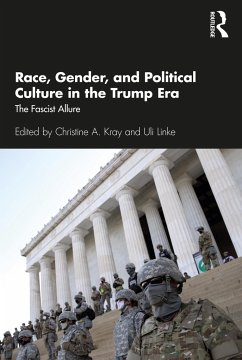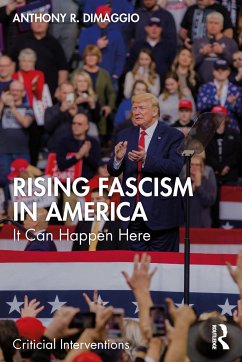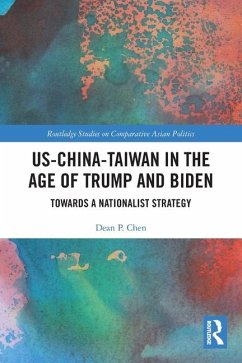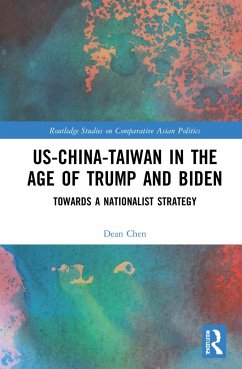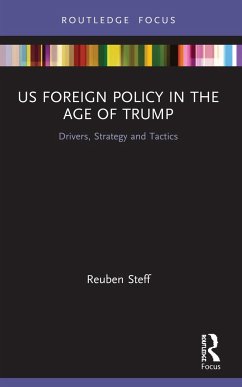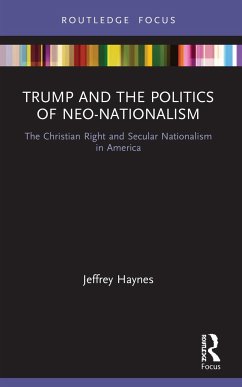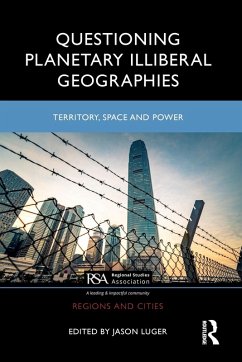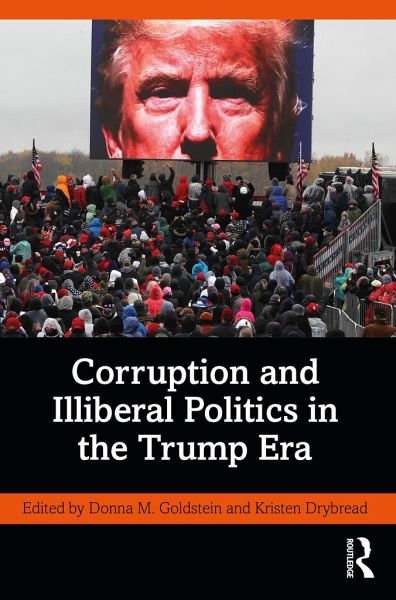
Corruption and Illiberal Politics in the Trump Era
Versandkostenfrei!
Versandfertig in 6-10 Tagen
42,99 €
inkl. MwSt.
Weitere Ausgaben:

PAYBACK Punkte
21 °P sammeln!
This book explores the nexus of corruption, late capitalism, and illiberal politics in the Trump era. Through deep, contextualized analysis and careful critique, it offers valuable perspectives on how corruption is defined and understood in the current historical moment. The book asks: Is today's corruption something new, or is it a continuation of prior patterns of illiberalism?Chapters in this collection consider how corruption is practiced, mobilized, or invoked in a range of cases, each of which is embedded within larger concerns about what citizenship, social belonging, honesty, and justi...
This book explores the nexus of corruption, late capitalism, and illiberal politics in the Trump era. Through deep, contextualized analysis and careful critique, it offers valuable perspectives on how corruption is defined and understood in the current historical moment. The book asks: Is today's corruption something new, or is it a continuation of prior patterns of illiberalism?
Chapters in this collection consider how corruption is practiced, mobilized, or invoked in a range of cases, each of which is embedded within larger concerns about what citizenship, social belonging, honesty, and justice mean in the United States today. The authors examine a constellation of unscrupulous actors and questionable actions, with topics ranging from sex scandals and shady real estate deals to the Trump administration's response to the COVID-19 pandemic. Several essays directly address the increasingly violent rhetoric and the deliberately anti-democratic policies that have flourished during the Trump era. The book draws on anthropological insights and comparative analysis to place the policies and practices of Trump and his supporters in a wider global context.
Corruption and Illiberal Politics in the Trump Era will be of great interest to readers from anthropology, sociology, political science, discourse studies, media studies, linguistics, and American studies.
Chapters in this collection consider how corruption is practiced, mobilized, or invoked in a range of cases, each of which is embedded within larger concerns about what citizenship, social belonging, honesty, and justice mean in the United States today. The authors examine a constellation of unscrupulous actors and questionable actions, with topics ranging from sex scandals and shady real estate deals to the Trump administration's response to the COVID-19 pandemic. Several essays directly address the increasingly violent rhetoric and the deliberately anti-democratic policies that have flourished during the Trump era. The book draws on anthropological insights and comparative analysis to place the policies and practices of Trump and his supporters in a wider global context.
Corruption and Illiberal Politics in the Trump Era will be of great interest to readers from anthropology, sociology, political science, discourse studies, media studies, linguistics, and American studies.





